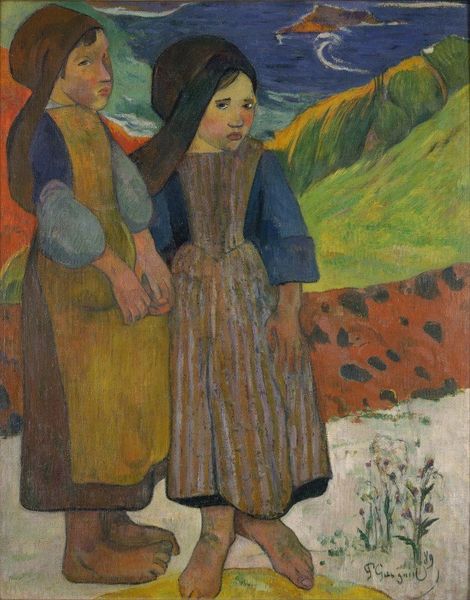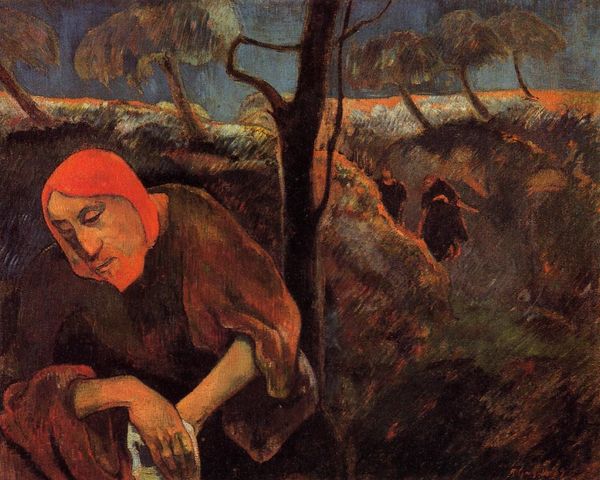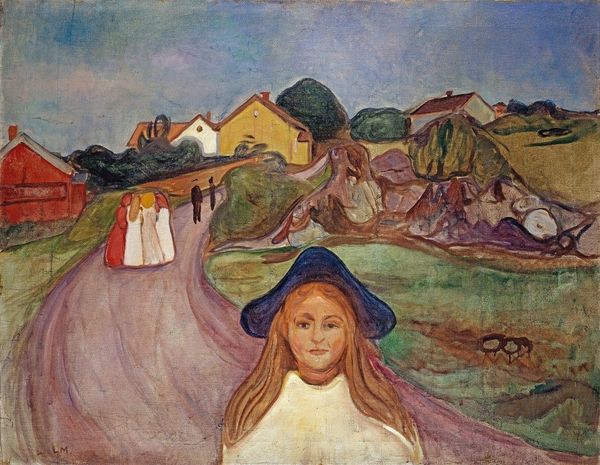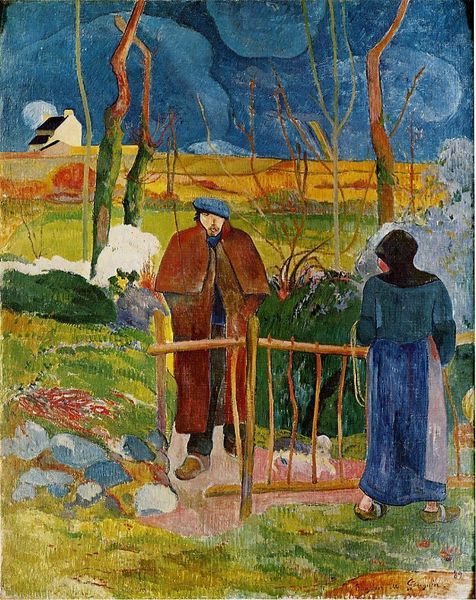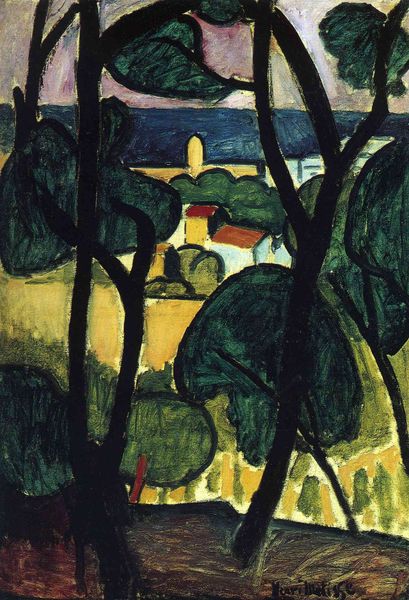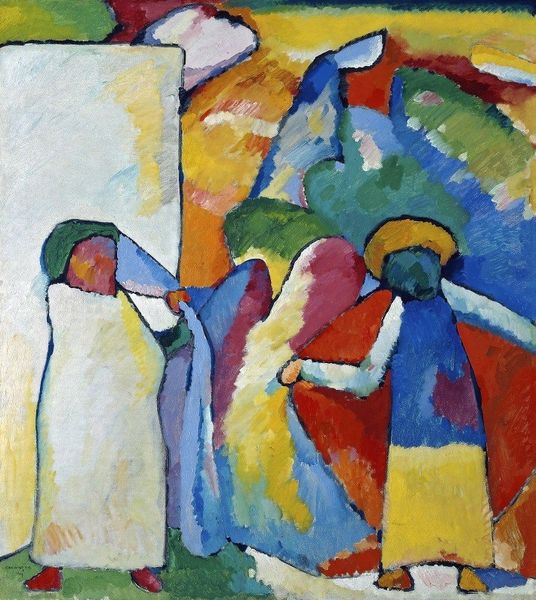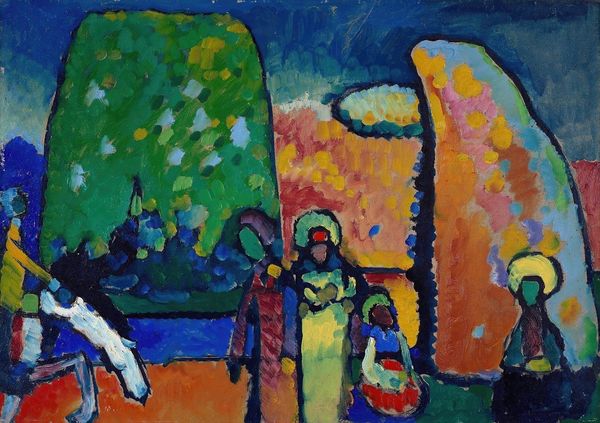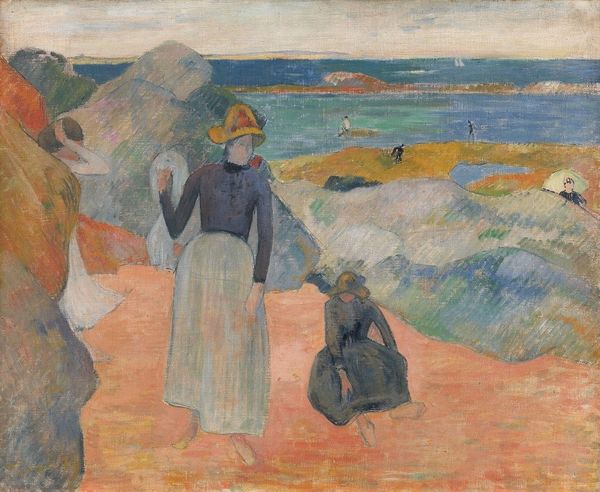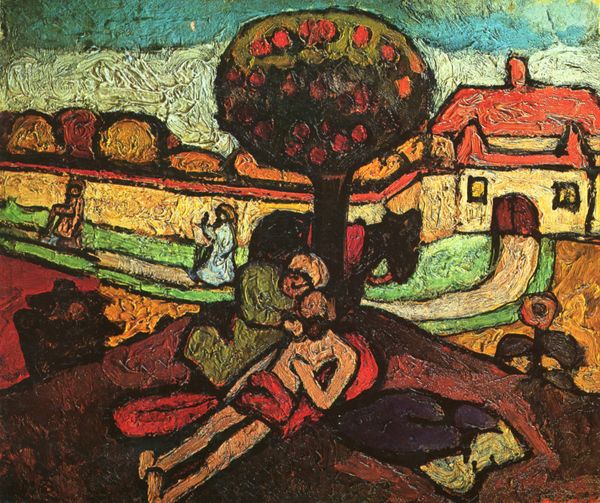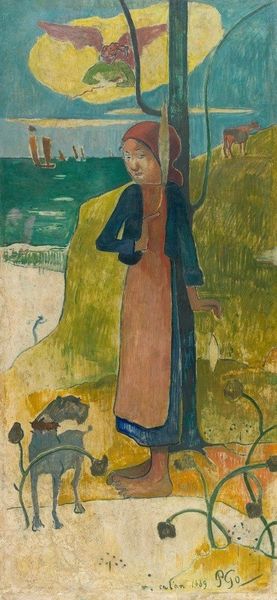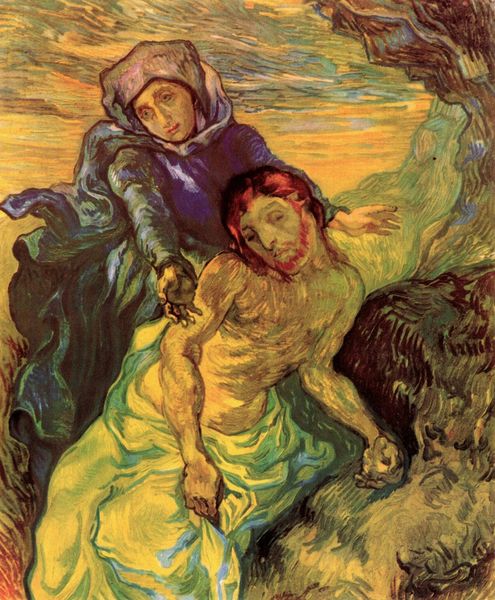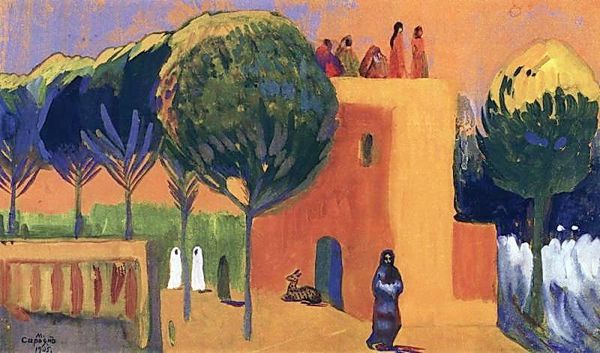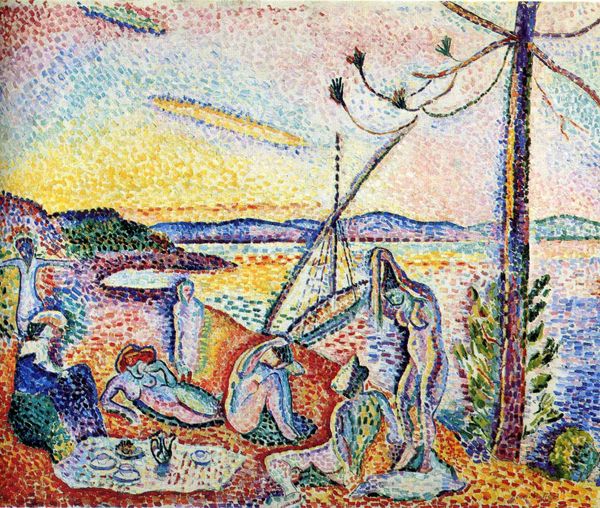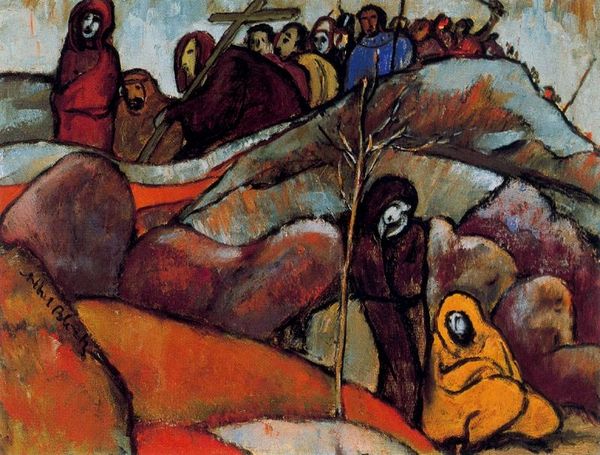
painting, oil-paint
#
statue
#
painting
#
oil-paint
#
landscape
#
figuration
#
oil painting
#
folk-art
#
naive art
#
symbolism
Dimensions: 92 x 73.5 cm
Copyright: Public domain
Paul Gauguin likely made this painting, *Calvaire breton*, with oils on canvas in the late 19th century. He used the oil paints in a way that accentuated their materiality. He wasn't interested in making things look naturalistic or polished. Instead, we see visible brushstrokes and flat areas of color, emphasizing the paint's texture and thickness. Gauguin seemed to revel in its inherent qualities. The choice of subject matter, a Breton calvary, deeply relates to his practice of traveling to remote locations, and creating simplified works of art in an attempt to avoid commodification and the influences of a more modern culture. Gauguin engaged with the tradition of painting, but his distinct style and the way he handled the materials reveal a desire to create something original and authentic, beyond the confines of academic art. By focusing on the raw qualities of the paint and the cultural context of Brittany, Gauguin challenged conventional ideas of artistic skill and elevated the act of painting to a more visceral and expressive level.
Comments
No comments
Be the first to comment and join the conversation on the ultimate creative platform.
